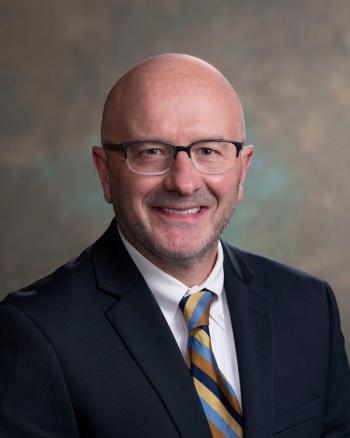
How physicians can counter mental health challenges during COVID-19
Effectively managing your stressors will increase your ability to care for patients.
Like nearly every other global citizen, physicians have felt the anxiety, depression, and stress resulting from the COVID-19 pandemic. From a decline in business at their practices to family members or themselves impacted by the coronavirus—and other triggers—the stressors can be overwhelming.
Some physicians are even experiencing burnout as more patients head back to the office in their area. “Burnout is something that is always an issue. As doctors are getting back into it, they may be trying to make up for the volume they have missed these last several months,” said Ron Holder, COO of Medical Group Management Association.
Taking care of their own mental health is essential in order to effectively care for patients. “When you are flying on a plane and the masks drop, why do you think you are told to put on your own mask first?” Holder asked.
If physician depression, anxiety, and burnout are not addressed, experts worry that more doctors will leave the practice. “We must attend to physician mental and emotional health to make sure we have adequate healthcare access in our communities,” said Christi R. Siedlecki, MSN, RN, CEO of Grants Pass Clinic and president of the Oregon Medical Group Management Association.
The current challenges
“I see physicians who are anxious about COVID. They are business owners and they are healthcare providers. The worry about business finances and they worry about the health of their families, patients, and support staff,” Siedlecki said.
“This is an industry going through massive change,” added Andrew Swanson, VP of Industry Insights at MGMA.
At the start of the pandemic in April, 50% of physicians surveyed by MGMA said the issue of burnout and mental health were not being addressed at their practice.
Then, by mid-May, many physicians were not as concerned about burnout; instead, many wondered whether they would have a job or not, Swanson noted.
However, more patients are going back to doctors, depending on the area of the country and the COVID-19 positive cases and mortality rates.
Some practices are getting back to 85%-to-90% of the case volume they had before the pandemic, according to MGMA. This summer, 87% of practices told MGMA they have recovered patient volumes.
“The thing that is going to make doctors happier is seeing patients,” Swanson said.
Solutions to alleviate mental health challenges and stress
Physicians undergoing stress, anxiety, depression and other mental health challenges should never be concerned about seeking professional mental health counseling, Swanson said.
However, many physicians—particularly those who are not recent medical school graduates and may not be aware of policy changes—are concerned that their license will be affected if they seek help, according to Swanson.
“A large majority say they don’t feel safe going to get help with mental health,” Swanson said. “Look at your state licensing rules and make sure you are aware of the treatment you can get, and it not affect your license in any way.”
Another way physicians and other members of the practice can alleviate burnout is by exploring ways to reduce physician stress when patient loads fully return to normal.
“It gives the team time to look inward—time they typically don’t have—to look at underlying reasons for physician burnout,” Swanson said.
For example, practices can examine their documentation templates or workflow if needed. “Look at small inefficiencies that, over the course of dozens of patient visits each day, create wasted time that frustrates physicians and the care team,” Swanson said.
When prior authorization challenges with certain payers won’t go away, “why not have a conversation with that payer?” Swanson said.
Another helpful task is to evaluate patient intake forms. “Are those forms digitized yet? Is the information you’re collecting important for the provider or practice, or is it just the way it’s always been done?” Swanson asked.
Newsletter
Optimize your practice with the Physicians Practice newsletter, offering management pearls, leadership tips, and business strategies tailored for practice administrators and physicians of any specialty.






